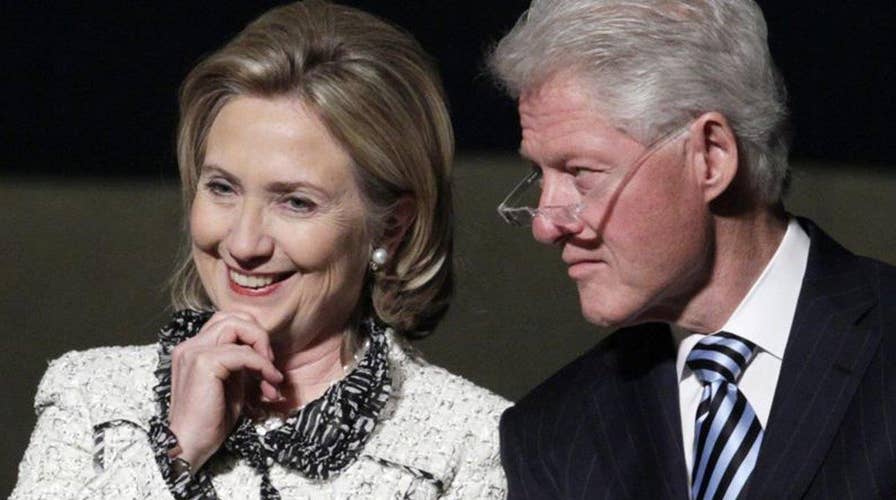Clinton Foundation took cash from anti-LGBT countries
William La Jeunesse reports from New York City
Democrats are renewing calls in the wake of the Orlando attack for an end to the federal ban on blood donations from sexually active gay and bisexual men – though the White House is staying on the sidelines of the debate.
Lawmakers made their case to Food and Drug Administration Commissioner Robert Califf in a letter sent Tuesday.
The letter from Rep. Mike Quigley, D-Ill., vice chairman of the House LGBT Equality Caucus, and five colleagues said the Orlando “tragedy, more than any other, shines a light on the need for a permanent reversal” of the policy.
The gunman targeted a gay nightclub. In their letter, the lawmakers argued the donor policy continues to stigmatize gay and bisexual men. While the FDA no longer institutes a blanket ban, it still bars blood donations from gay men who have been sexually active in the past year.
“We are concerned the 12-month deferral policy, which suggests that the sexual relationships of [gay] men and transgender women inherently pose a risk of HIV transmission, furthers a stigma that we have persistently fought to eliminate,” the lawmakers wrote. “The FDA questionnaire should reflect risk-based behaviors as opposed to sexual orientation.”
While the Obama administration has joined with Democratic lawmakers in pursuing gun control measures after the Orlando terror attack, the White House has deferred to the FDA on this issue.
“If there are any additional changes that are made, it’s going to be rooted in the advice that we’re getting from the scientists at the FDA,” White House Press Secretary Josh Earnest told reporters earlier this week, when asked whether the administration would revisit the policy.
Rep. Jared Polis of Colorado, the first openly gay man elected to Congress, told National Journal the policy is a “bigoted ban” and the letter, which he signed, is a means to expose its “moral bankruptcy.”
The FDA first established a policy in 1983 that barred men who had sex with men (MSM) after 1977 from ever giving blood, in response to concerns about the spread of AIDS among gay men. Upon review and much lobbying, it was eased in 2015.
An FDA working group examined several options, including moving to individual risk-based assessments and changing to a five-year deferral, but settled on the rule that gay men must wait at least one year after their most recent sexual encounter before donating.
Despite the spotlight placed on the policy by the Orlando attack, it does not appear likely the FDA will further ease it imminently.
“The FDA will closely monitor the effects of moving to a 12-month deferral for MSM over the next few years in order to help ensure that blood safety is maintained. At the same time, the FDA will continue to review its donor deferral policies to ensure they reflect the most up-to-date scientific knowledge. This process must be data-driven, so the timeframe for future changes is not something we can predict,” said Tara Goodin, an agency spokeswoman, in an email to FoxNews.com.
The FDA has defended the current approach.
“Ultimately, the 12-month deferral window is supported by the best available scientific evidence, at this point in time, relevant to the U.S. population. We will continue to actively conduct research in this area and further revise our policies as new data emerge,” said Peter Marks, deputy director of the FDA’s Center for Biologics Evaluation and Research, in announcing the deferral policy.
But David Stacy, Human Rights Campaign’s government affairs director, called the rule “unfair, outdated” and stigmatizing.
“A risk-based approach based on the most recent science would be the right policy. If there was ever a moment that shows the blood ban should be lifted, it’s right now -- when dozens of LGBTQ people are lying wounded in hospitals across Orlando in need of urgent care,” he said in a statement to FoxNews.com.
Quigley, who has been working to end the ban since he came to Congress in 2009, has requested meetings with officials from the FDA and Department of Health and Human Services, according to spokeswoman Emily Hampsten.
In June 2013, the American Medical Association (AMA) announced their official support for moving from away from a blanket deferral on such blood donations and screening them on a case-by-case basis.





